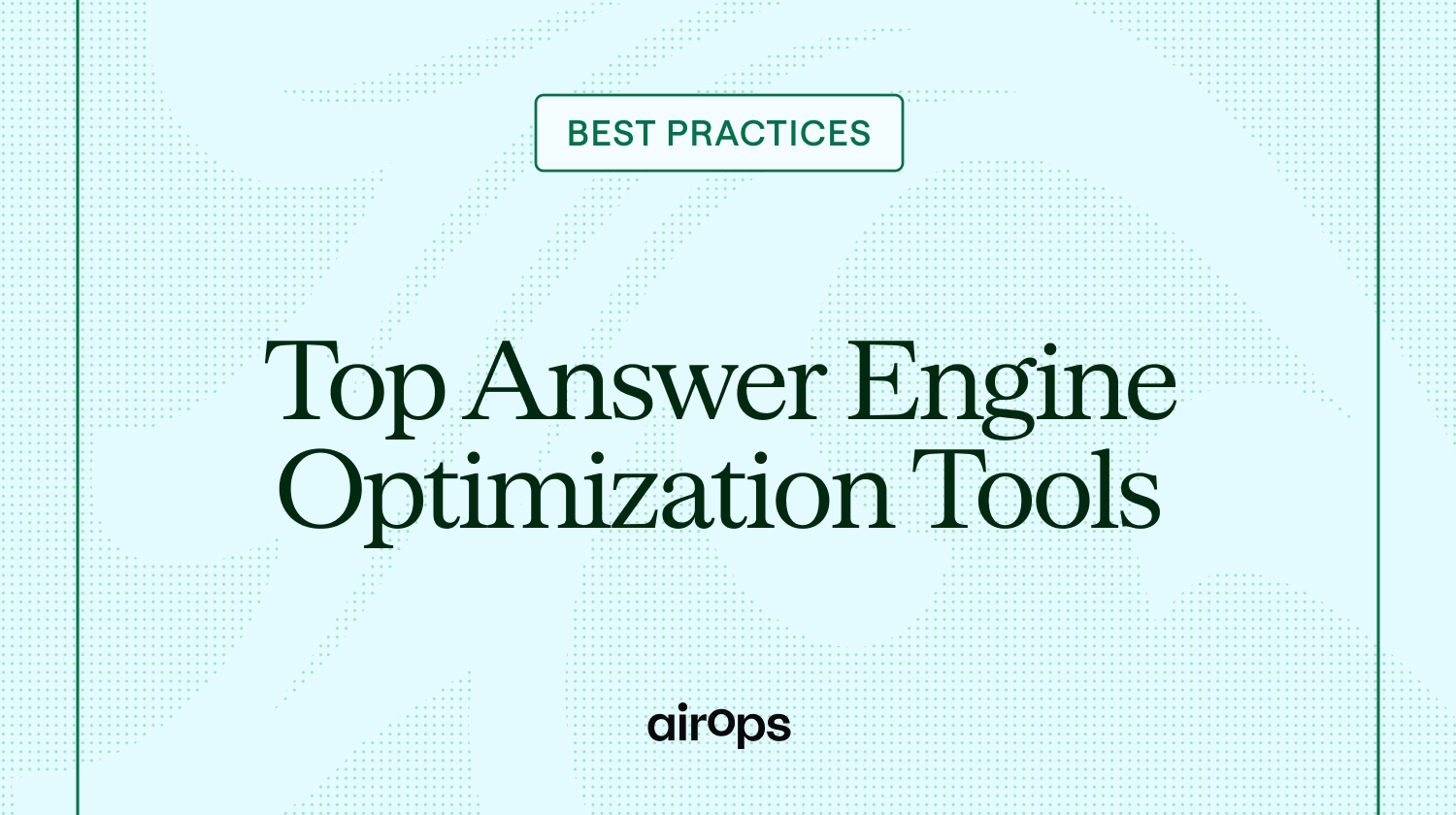Organic Search: A Guide On SEO and AI Visibility in 2026

Organic search drives over 50% of website traffic, making it the most powerful and cost-effective channel for long-term digital growth.
Blending traditional SEO with AI-driven tactics ensures your business remains discoverable across both Google and emerging LLM answer engines.
This guide breaks down how to improve performance, track ROI, and future-proof your organic search strategy across both traditional SERPs and answer engines.
What is Organic Search?
Organic search refers to the unpaid results that appear on search engine results pages (SERPs) based on their relevance to a user’s query.
Organic search results are ranked by algorithms that evaluate factors like content quality, website authority, and user engagement.
How Does Organic Search Work?
Organic search works by matching user queries with the most relevant, high-quality web pages, using complex algorithms to rank results.
Search engines like Google crawl and index content, then evaluate pages based on factors such as semantic relevance, E-E-A-T signals (Experience, Expertise, Authoritativeness, Trustworthiness), site authority, and user experience.
Pages that clearly demonstrate expertise and align with search intent are more likely to rank higher in organic (unpaid) search results..
How is Organic Search Different from Paid Search?
Organic search earns visibility through relevance and credibility—not budget. It drives qualified traffic and builds compounding value over time through trustworthy, search-aligned content.
Paid search, by contrast, offers immediate visibility through sponsored placements—but only for as long as you’re actively spending. When the budget stops, so does the traffic.
Why Organic Search Matters in Modern Marketing
Organic search is the most effective and sustainable channel for driving qualified traffic, building brand authority, and compounding long-term growth.
According to BrightEdge, it accounts for over 50% of all website traffic and consistently outperforms other channels for lead quality and ROI.
It plays a central role in connecting businesses with high-intent users across every stage of the buyer journey—delivering consistent, unpaid traffic by aligning content with both user needs and search engine expectations.
As traditional search engines and AI-powered answer engines (like ChatGPT, Perplexity, and Gemini) reshape how people access information, mastering organic search is essential to staying competitive.
Marketing teams who stay ahead of organic search trends, adapt to evolving query behavior, and invest in both SEO and AEO strategies are best positioned for long-term success.
Why Organic Search Drives Results
- Reaches users at every stage of the buyer journey, from awareness to conversion.
- Matches search intent with relevant content, improving engagement and click-throughs.
- Signals authority through consistent visibility in search and answer engines.
- Supports full-funnel marketing, including post-purchase and retention.
The Rise of Answer Engines
As AI-powered platforms like ChatGPT, Gemini, and Perplexity gain traction, answer engines are reshaping search behavior. To win visibility in these environments, businesses must focus on content quality, semantic relevance, and Googles E-E-A-T (Experience, Expertise, Authoritativeness, Trustworthiness) guidelines.
Mastering organic search today means optimizing for both traditional SERPs and conversational, AI-driven results.
How to Improve Organic Search Performance
Improving organic performance requires visibility in both traditional search engines and AI-powered answer engines. That means combining traditional SEO with AEO strategies—focusing on semantic structure, clarity, and extractable, intent-matched answers.
1. Conduct Intent-Driven Keyword Research
Keyword research must balance search volume, user intent, and answerability.
- Identify high-value, intent-specific keywords using tools like Ahrefs, Semrush, or Search Console
- Include natural-language queries and long-tail phrases optimized for AI assistants
- Map keywords to the appropriate content format (how-to, list, definition, comparison)
- Refine regularly based on evolving search trends and AI autocomplete behavior
2. Create Content Structured for Humans and Machines
Modern content must be structured for both users and large language models (LLMs). This means using clear formatting, semantically rich language, and extractable answers.
Well-structured content improves user readability while helping LLMs accurately interpret and surface your content in answer engines.
- Lead with fact-first sentences and direct definitions (e.g., “Organic search refers to…”)
- Use semantic headings (H2s, H3s) to signal content hierarchy and intent
- Format answers in bullet points, tables, and frameworks for easy extraction
- Include keywords and entities naturally, without stuffing
AEO Tip: Use “is/are” sentence structures and concise paragraphing to increase chances of being cited in AI answers and Google Overviews.
3. Strengthen Technical and Semantic SEO
Technical SEO makes your site crawlable and indexable, while semantic SEO makes its meaning clear to search engines and LLMs. Both are essential for improving visibility across organic search.
- Improve page speed, mobile responsiveness, and site structure
- Use schema markup (e.g., HowTo, FAQ, Article) to enhance machine readability
- Ensure clean, crawlable HTML with logical heading structure
- Connect semantically related topics with internal links and consistent terminology
AEO Tip: Use schema.org markup to help search engines and AI platforms understand the purpose and structure of your content.
4. Optimize On-Page Elements for Clarity and Context
On-page SEO signals what your content covers, how it’s structured, and why it’s relevant to a user’s query. It helps search engines and answer engines understand both the topic and its value.
- Craft precise meta titles and descriptions that reflect user intent
- Use headers to mirror query formats (e.g., “How does X work?”, “Why is X important?”)
- Include glossary-style definitions, summaries, and comparison tables
- Embed multimedia with descriptive alt text and captions
AEO Tip: Embed short, self-contained answers near the top of each section to maximize snippet and overview potential.
5. Build Authoritative, AEO-Friendly Backlinks
Links signal credibility and authority—core ranking factors for both search engines and AI-driven answer engines. High-quality backlinks increase your content’s trustworthiness and visibility across platforms.
- Create original assets like research studies, templates, or industry benchmarks
- Earn mentions from reputable sources through outreach and editorial placements
- Avoid manipulative tactics; focus on quality and topical relevance
- Track your backlink profile and remove harmful links
AEO Tip: Backlinks from trusted domains—and citing credible sources or original data within your content—increase your chances of being cited in AI-generated answers and surfaced in tools like Google AI Overviews.
Using proven SEO content optimization strategies is essential for maximizing visibility and meeting both user and search engine requirements.
How to Measure Organic Search Performance and ROI
Tracking the right metrics helps you understand how well your SEO efforts are working—and where to improve. Effective measurement includes both traditional KPIs and content metrics that signal visibility in AI-driven search results.
1. Monitor Core SEO KPIs
Use tools like Google Analytics, Google Search Console, and third-party SEO platforms to track performance across traffic, engagement, and conversions.
- Organic Traffic: Measure how many users reach your site through unpaid search
- Keyword Rankings: Track performance across target queries and monitor movement
- Click-Through Rate (CTR): Evaluate how well your titles and meta descriptions attract clicks
- Conversions & Revenue: Tie traffic to outcomes using attribution models and goal tracking
AEO Tip: Track visibility not just in SERPs but in featured snippets, People Also Ask boxes, and AI Overviews—these are key surfaces for LLM discovery and citation.
2. Evaluate Content Engagement and Quality
High-performing organic content doesn’t just rank—it keeps users engaged and drives action that align with larger business objectives.
- Bounce Rate & Time on Page: Signals content relevance and user satisfaction
- Scroll Depth & Session Duration: Indicates whether users are engaging with your content
- Pages per Session: Shows how well your internal linking and content ecosystem work
3. Analyze Backlinks and Authority
Your site’s authority profile plays a major role in organic and AI-driven rankings.
- Referring Domains: Track both the quantity and quality of backlinks
- Anchor Text: Ensure link context matches your target keywords and topics
- Toxic Links: Disavow low-quality or spammy backlinks that hurt trust
- Mentions from Trusted Sources: Citations from .edu, .gov, and reputable publishers enhance credibility
4. Assess Visibility in AI Overviews and Answer Engines
Traditional rankings are no longer the sole measure of visibility. AI-powered results in platforms like ChatGPT, Perplexity, and Google’s AI Overviews now play a critical role in how users discover and evaluate information.
- Check whether your brand or content appears in AI answers for target queries
- Track mentions and citations across answer engines using brand monitoring tools
- Structure content with extractable, snippet-ready formats to boost inclusion likelihood
5. Calculate ROI From Organic Growth Initiatives
To evaluate ROI, analyze organic performance and bandwidth allocations to revenue impact—across both traditional search and answer engines. A complete view includes traffic value, content performance, visibility metrics, and competitive position.
- Revenue Attribution: Use first-touch, last-touch, or multi-touch models to link organic traffic to conversions, pipeline, and revenue.
- SEO Budget Spend: Include internal time, tools, content production, technical work, and agency or freelance costs.
- Organic Share of Voice (SoV): Measure how often your brand appears across queries, community forums, and SERPs—prioritizing both Google SERPs and answer engines like ChatGPT, Perplexity, and Gemini.
- Brand Visibility & Mentions: Track citations, brand mentions, and inclusion in AI-generated answers as part of your organic footprint.
- Content Efficiency: Compare the performance of individual pages or topics relative to their production and maintenance cost.
AEO Tip: Tools like ChatGPT, Google SGE, and Perplexity can be used to simulate queries and measure your presence in AI answers—critical for tracking modern visibility and competitive impact.
How to Leverage Search Insights to Optimize, Scale and Drive Growth
Organic search insights give you a real-time view of what your audience wants, how they search, and where opportunities exist to capture demand.
When used strategically, these insights fuel smarter decisions across content, product, and go-to-market execution.
Best Practices For Operationalizing Search Insights
- Refine and Expand High-Intent Content: Use top-performing queries and pages to guide refreshes, repurposing, and gap-filling across priority topics.
- Adapt to Emerging Search Behavior: Track rising keywords, semantic shifts, and declining performance to stay aligned with evolving user intent and AI-driven interpretation.
- Fuel Product and Feature Development: Identify recurring pain points and unmet informational needs to inform product strategy, onboarding flows, or support docs.
- Prioritize Scalable Content Opportunities: Double down on content types and clusters that consistently generate traffic, citations, and conversions across both SERPs and answer engines. Use AI tools to forecast content ROI and automate high-volume optimizations.
- Activate Cross-Functional Strategy: Share insights from search data—like query trends and user phrasing—with product, sales, and marketing to inform messaging, positioning, and roadmap decisions.
Adopting AI-first SEO strategies isn’t just about optimization—it’s about future-proofing your content for visibility across evolving search experiences powered by LLMs and generative AI, in both traditional search engines like Google and AI-powered answer engines like ChatGPT, Perplexity, and Gemini.
Mastering Your Organic Search Strategy
Organic search continues to be the highest-impact channel for long-term digital growth. By combining technical SEO, strategic keyword targeting, and user-centric content, businesses can build authority, drive qualified traffic, and compound visibility over time.
To stay competitive, teams must also adapt to evolving search behavior—including AI-powered answers, conversational search, and mobile-first indexing—ensuring content performs across varying search results.
How AirOps Helps Teams Win in Traditional and AI-First Search
AirOps empowers marketing teams to lead with AI-first strategies by combining advanced SEO, AEO optimization, and scalable content workflows.
With prebuilt templates and Power Agents, AirOps streamlines content creation, increases visibility in answer engines, and unifies cross-functional teams around organic growth initiatives.
With AirOps, teams can:
- Scale high-quality content without sacrificing brand or structure
- Monitor visibility across both traditional search engines and AI platforms
- Prioritize updates and expansion based on search data, user behavior, and content performance
- Create and streamline workflows that future-proof your strategy for AI-generated discovery and citation share
Ready to win in both traditional search and emerging AI answer engines? Book a strategy session with our team today.
Win AI Search.
Increase brand visibility across AI search and Google with the only platform taking you from insights to action.
FAQs
Get the latest on AI content & marketing
Get the latest in growth and AI workflows delivered to your inbox each week
.avif)


.png)
